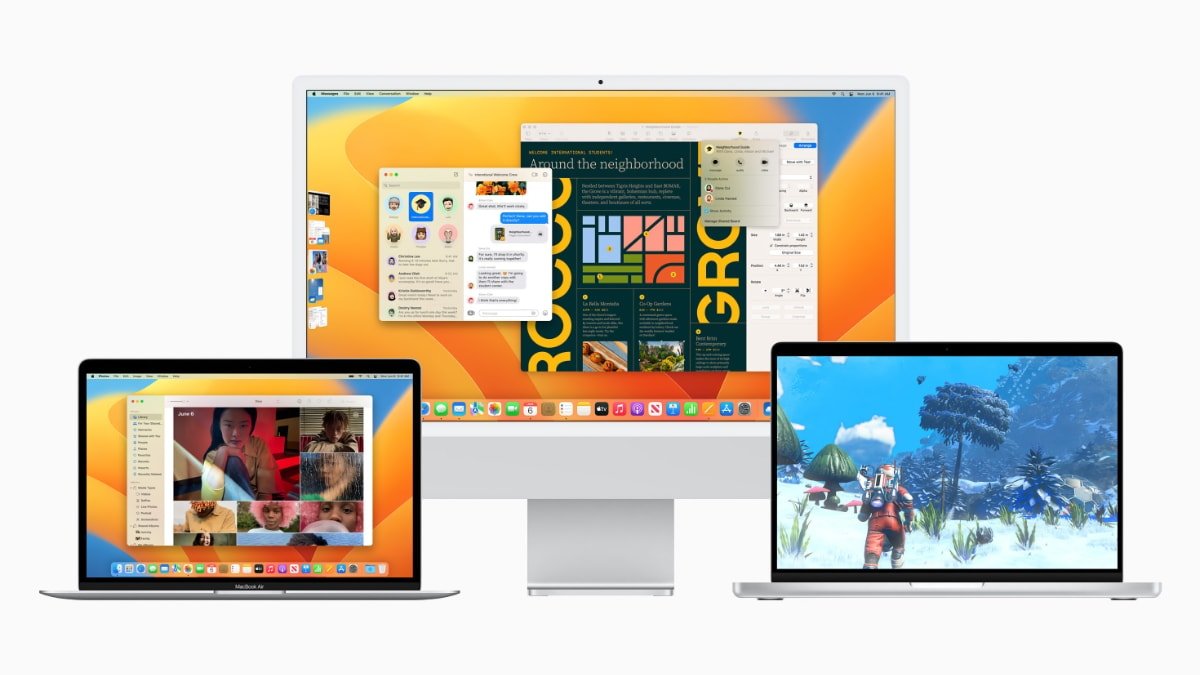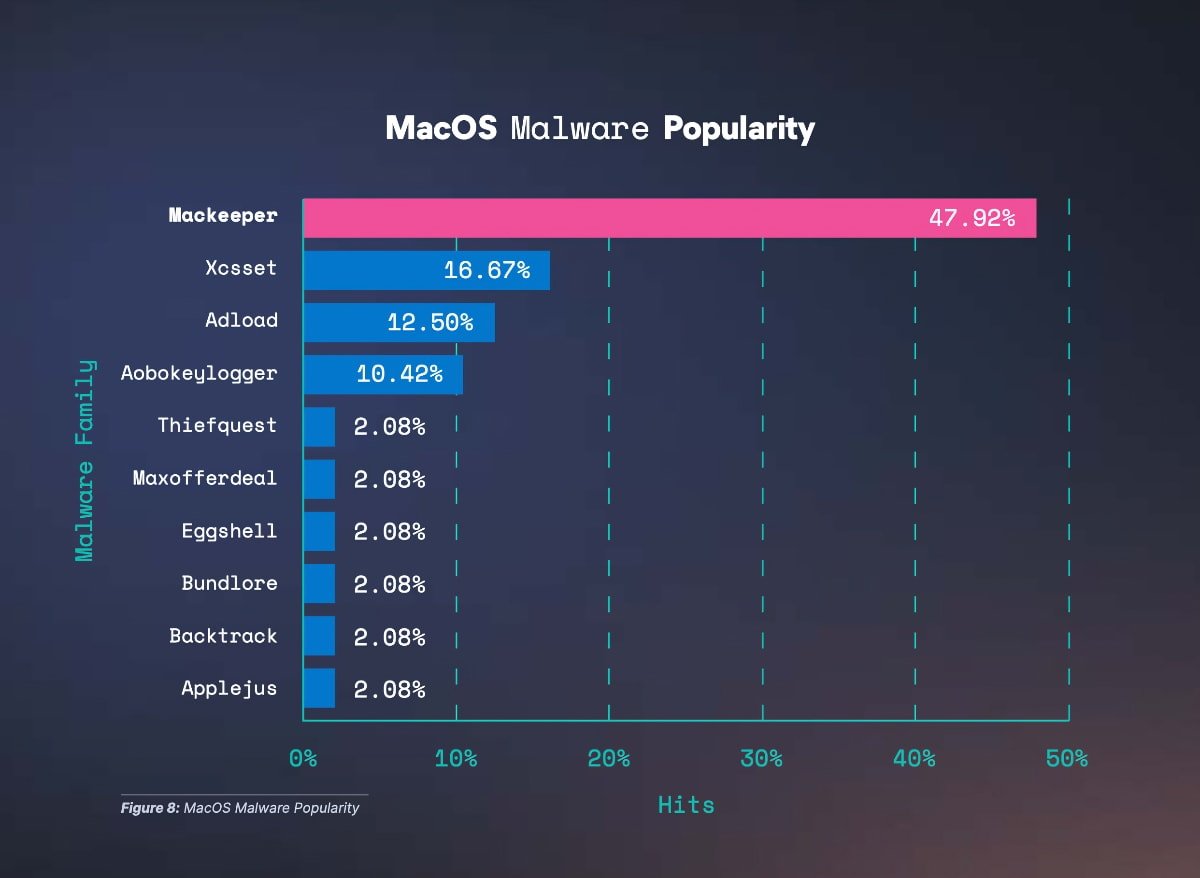macOS had the least malware infections in 2022
A new global threat report paints an ugly picture for Microsoft as Windows continues to have the most malware infections, while macOS had the least malware.

Macs continue to be safe from malware
Elastic Security Labs published a cybersecurity report on Tuesday that examines popular operating systems and the threats they have received. The company also includes forecasts and recommendations for enterprise customers.
As usual, macOS is at the bottom of the list, even beating Linux, meaning it saw the least amount of security threats. The numbers show that 54% of all malware infections were found on Windows, 39.4% were found on Linux, and macOS only had 6.2% of infections.
Trojans were responsible for most infections, coming in at 80.5%. A Trojan is a piece of software that pretends to be benign but hides malware inside that activates once a user runs the program.
The researchers found that MacKeeper was the biggest threat for Mac users as an attack vector for malware. MacKeeper has a bad history that involved aggressive advertising, and some versions left Macs vulnerable to attack from malware.

The MacKeeper program is often seen as malware, or used to spread malware
The report mentions that attackers can abuse MacKeeper since it has extensive permissions and access to macOS processes and files.
It also warns that macOS cryptominers could become more prevalent in malware for Apple's platform. Cryptomining malware or "cryptojacking" is a malicious program that uses a computer to secretly "mine" a cryptocurrency without the user's consent.
Mining takes up most or all of the computer's resources, such as GPU or CPU performance, slowing down the system.
Besides those specific references, macOS wasn't mentioned much in the report. It shows that Mac users don't have a whole lot to worry about when it comes to malware infections.
Craig Federighi, Apple's head of software engineering said in 2021 that the platform has an unacceptable level of malware, or at least worse than iOS. But macOS has built-in protections for users, including antivirus software, verification of apps from known developers, and filesystem encryption.
Read on AppleInsider

Macs continue to be safe from malware
Elastic Security Labs published a cybersecurity report on Tuesday that examines popular operating systems and the threats they have received. The company also includes forecasts and recommendations for enterprise customers.
As usual, macOS is at the bottom of the list, even beating Linux, meaning it saw the least amount of security threats. The numbers show that 54% of all malware infections were found on Windows, 39.4% were found on Linux, and macOS only had 6.2% of infections.
Trojans were responsible for most infections, coming in at 80.5%. A Trojan is a piece of software that pretends to be benign but hides malware inside that activates once a user runs the program.
The researchers found that MacKeeper was the biggest threat for Mac users as an attack vector for malware. MacKeeper has a bad history that involved aggressive advertising, and some versions left Macs vulnerable to attack from malware.

The MacKeeper program is often seen as malware, or used to spread malware
The report mentions that attackers can abuse MacKeeper since it has extensive permissions and access to macOS processes and files.
It also warns that macOS cryptominers could become more prevalent in malware for Apple's platform. Cryptomining malware or "cryptojacking" is a malicious program that uses a computer to secretly "mine" a cryptocurrency without the user's consent.
Mining takes up most or all of the computer's resources, such as GPU or CPU performance, slowing down the system.
Besides those specific references, macOS wasn't mentioned much in the report. It shows that Mac users don't have a whole lot to worry about when it comes to malware infections.
Craig Federighi, Apple's head of software engineering said in 2021 that the platform has an unacceptable level of malware, or at least worse than iOS. But macOS has built-in protections for users, including antivirus software, verification of apps from known developers, and filesystem encryption.
Read on AppleInsider

Comments
IMHO, MalwareBytes is the best option on the market for Mac users.
Windows is the most popular commercial OS, macOS is the least popular, and Linux is high value because it's usually used by businesses.
I do remember the days when Microsoft and Symantec were the most prolific means to attack a Mac. Seeing Mackeeper at the top shows that Apple is not the company creating the attack vectors but commercial products are. Theres no way to find every single bug in an operating system but "trojans" (see article) and phishing still outweigh any actual macOS bugs.